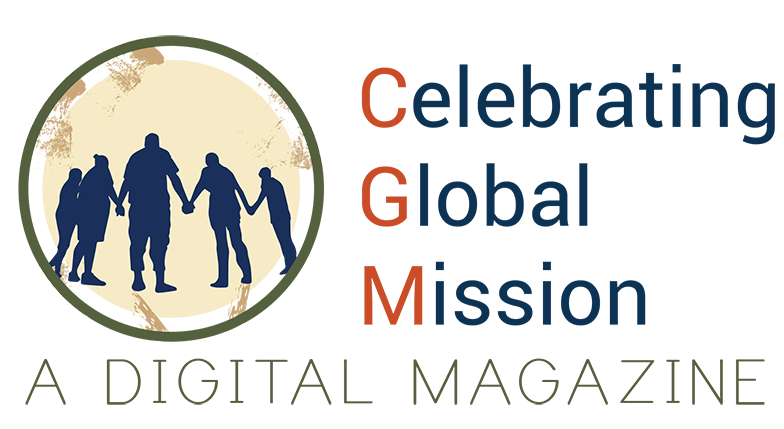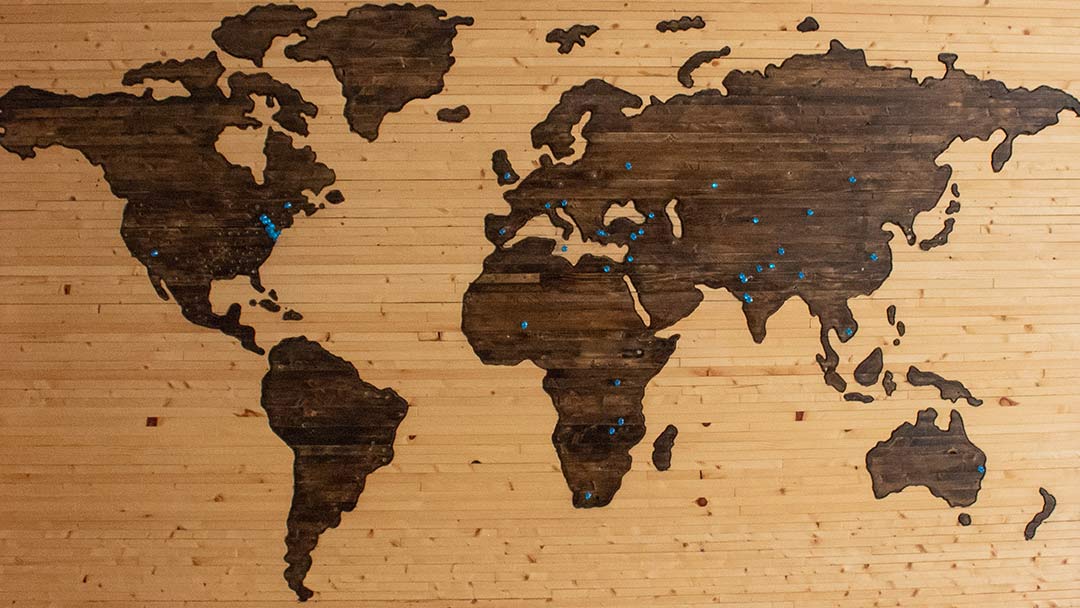Follow the story of the Subula* language community in Cameroon, West Africa, and Elliot and Serena Derricks, who partner with them. [*Pseudonym being used due to sensitive situation.]
BEGINNINGS
The goal of our first year was to become fluent in French. We spent our first year in language school living near Joan and Martin Weber. In January of 2019 we FINALLY were good enough in French to make a visit to the area where our language group lives. We would spend a week visiting the region and scouting out potential houses we could rent once we moved up there. They had been waiting a long time to welcome us and the celebration was overwhelming in the best of ways.
As we pulled off the paved road to make our way to one of their main villages, our car was surrounded by a crowd of people dancing, singing and playing instruments. It was truly the warmest welcome imaginable! Did I mention it was well over 106 degrees outside?! They paraded us up to their church’s front door where an even larger crowd awaited us.
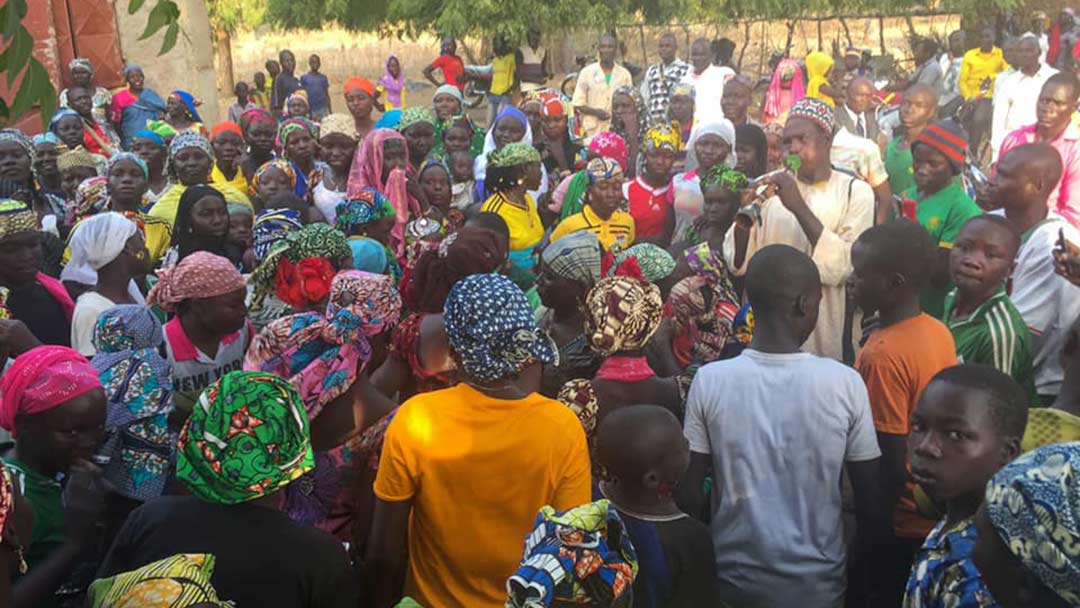
I had never seen a church that full of people, with every window packed with more trying to see inside. They had all come to welcome their new missionaries and see that the Bible translation project was taking a big step forward towards becoming a reality!
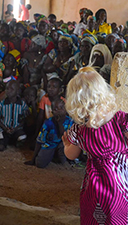
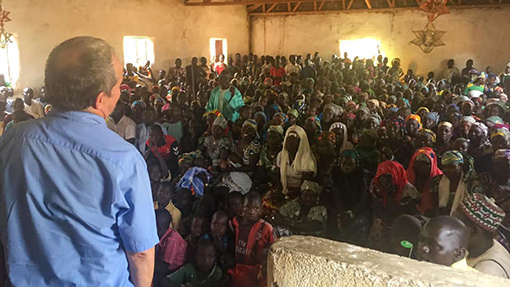
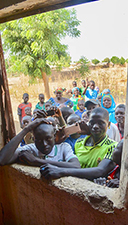
“This work of Bible translation and literacy isn’t for us,” the President of the language committee shouted to the crowd during his speech. “Look beside you at your children and your neighbor’s children — this work is for them! We are old and may never have the opportunity to hold a complete Subula* Bible in our two hands, but we pray and hope that our future generations will!”
COMMUNITY INVESTMENT IN 2020
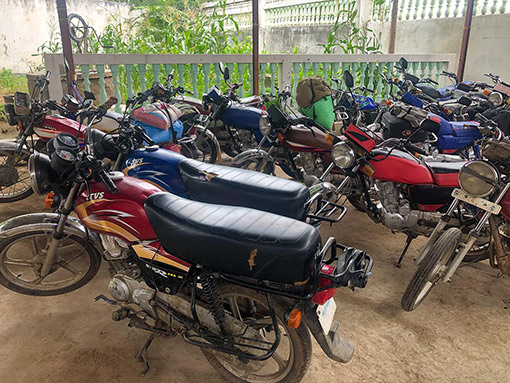
We hosted a dialect workshop within the Subula* language community. This workshop is comparable to laying the foundation of a house before you even begin building. The information gathered during this workshop is foundational for the community to feel empowered to make decisions for how to move forward in the project.
Each “moto” (motorbike) in this picture represents individuals, hand selected by their community, to be engaged and investing in translating a full Bible into their heart language. Nearly 30 people from nine dialects were present and have been working hard!
DREAMING BIG
The first words, sentences, chapters of Luke being revised/translated into the two main dialects of the Subula* language group! One group is revising their New Testament translation from the 1970s and the second group is drafting the first Bible in their dialect ever. EVER.
It’s hard to express how truly humbled we are to be working alongside them.
The roughest of rough drafts first. Then, some more verses. In a few months, some chapters or even a whole book. A few years, the entire New Testament. Eventually, the Old Testament (which neither group has had before). Throw in some community checking and consultant checking, and they will be planning a party to dedicate their full Bible.
Am I getting ahead of myself?
Definitely yes. This project will take 10 years at the minimum.
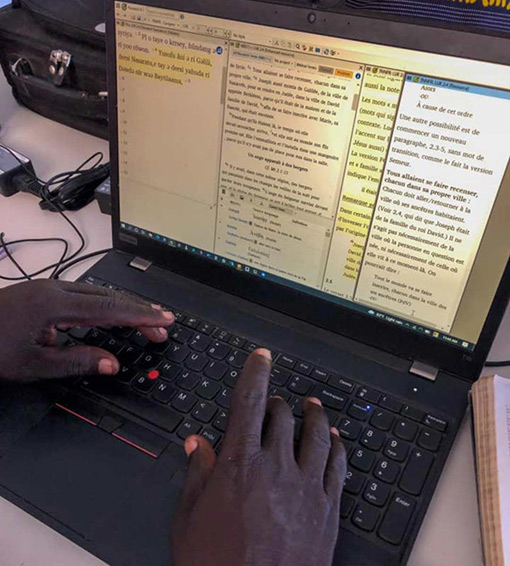
Do I like to dream big?
Triple yes. This project is in the Lord’s hands, and we are just along for the ride!
CHANGING WITH TIME
We joined in the celebration of one of the biggest accomplishments in the literacy project to date — opening classes in local schools! Pictured here are the kids as they took time to greet each of the students taking part in the first class!
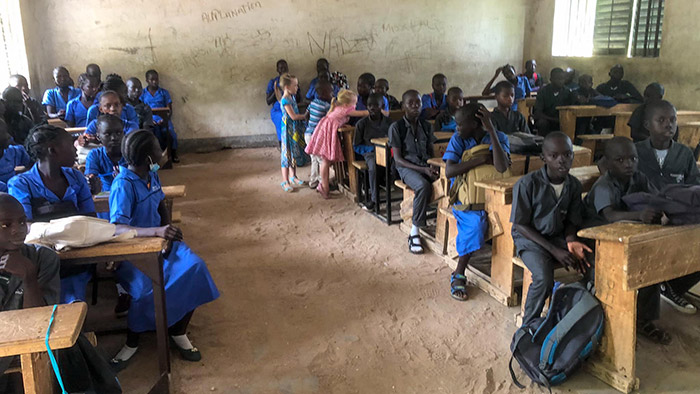
The literacy team, in partnership with the government, was able to open up a Language and Culture class in two secondary schools! This is the first time the schools have been able to have these classes and more than 400+ students will take part this school year.
The language group was instrumental in finding and supporting the teachers. The government aided in training, school connections and curriculum.
This class will focus on encouraging students in the importance of their mother tongue and culture, their language’s alphabet and teach them more about the beauty of their country and its diversity.
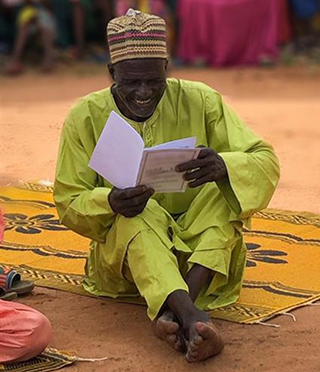
One of the older gentleman on our literacy team recently said, “When I attended school, they didn’t let us speak our mother’s language because they said we wouldn’t be able to learn French. I’m so happy these things have changed with time and my grandchildren can be proud to speak their language. Having it taught in school shows them how important it is.”
“I see that God has prepared the way ahead of us in this path to help my people read and write in our language.”
Her beautiful smile erupted when she heard the traditional stories being read from the books we brought along to share. She knew every word of the story before the literacy coordinator even read it.
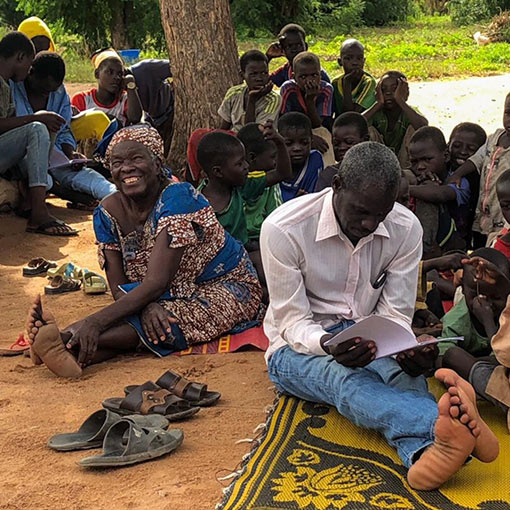
Find out how you can support the Subula* language community at go.LBT.org/subula
Want more info?
- Email the author.
- Like this article? Share it using the social media buttons below.
- Want a print copy? Click the printer icon below.
- And please rate the article!
